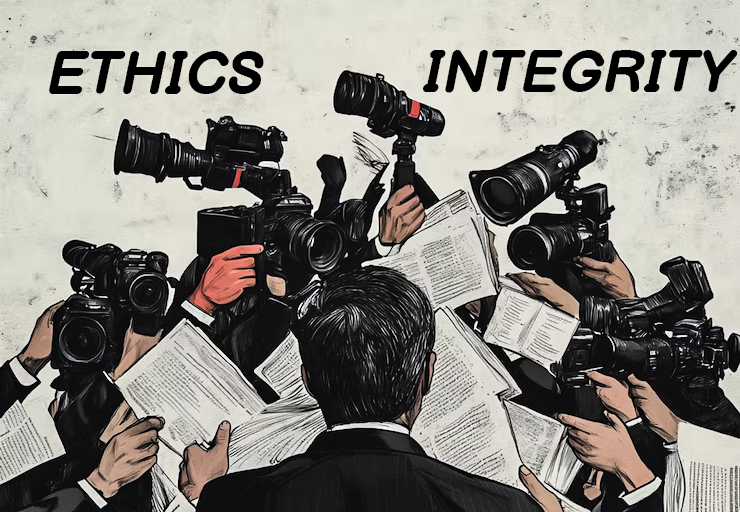I recently sat in a room full of media practitioners, and one phrase echoed in my mind long after the forum ended: “You can’t eat ethics.”
It was said half-jokingly, but it carried the weight of lived experience — and the pain of working in a profession where idealism often collides with survival.
We like to imagine journalists as fearless, principled truth-tellers. But behind the headlines and bylines, many of them — especially those working in remote areas — are simply trying to get by. Some cover stories on motorbikes, using their own money to chase leads that may never be published, let alone paid for. Others admit they are routinely asked to “facilitate” coverage with a small fee. Some don’t ask — they expect.
It’s uncomfortable to talk about. But this is the reality.
Ethics are easy to preach when you have a steady paycheck, health insurance, and institutional backing. But what happens when you’re stringing stories from village to village, unpaid for weeks or months, and expected to report with objectivity and poise?
This isn’t an excuse for corruption in the newsroom. It’s a plea to understand the context.
We often focus on holding power to account — and rightly so. But who is holding space for the journalist who sleeps hungry after covering a county budget story? Who protects the correspondent who can’t afford data bundles to file their report, let alone the rent?
At the forum, A journalist quipped, “Corruption has become corporate jargon.” It hit me hard. Not just because it’s true — but because it shows how embedded the problem is. In policy. In systems. In language.
It’s time we have honest conversations about how we support ethical journalism — not just by condemning what’s wrong, but by addressing the structural inequalities that make ethical choices nearly impossible for some.
We need collaboration. We need empathy. And we need courage — not just in newsrooms, but in boardrooms, CSOs, and among citizens.
Because integrity shouldn’t be a luxury. And no journalist should have to choose between doing the right thing and putting food on the table.
Let’s not wait until the cost of silence is too high.
“You Can’t Eat Ethics”: A Reflection on Journalism, Survival, and Integrity








